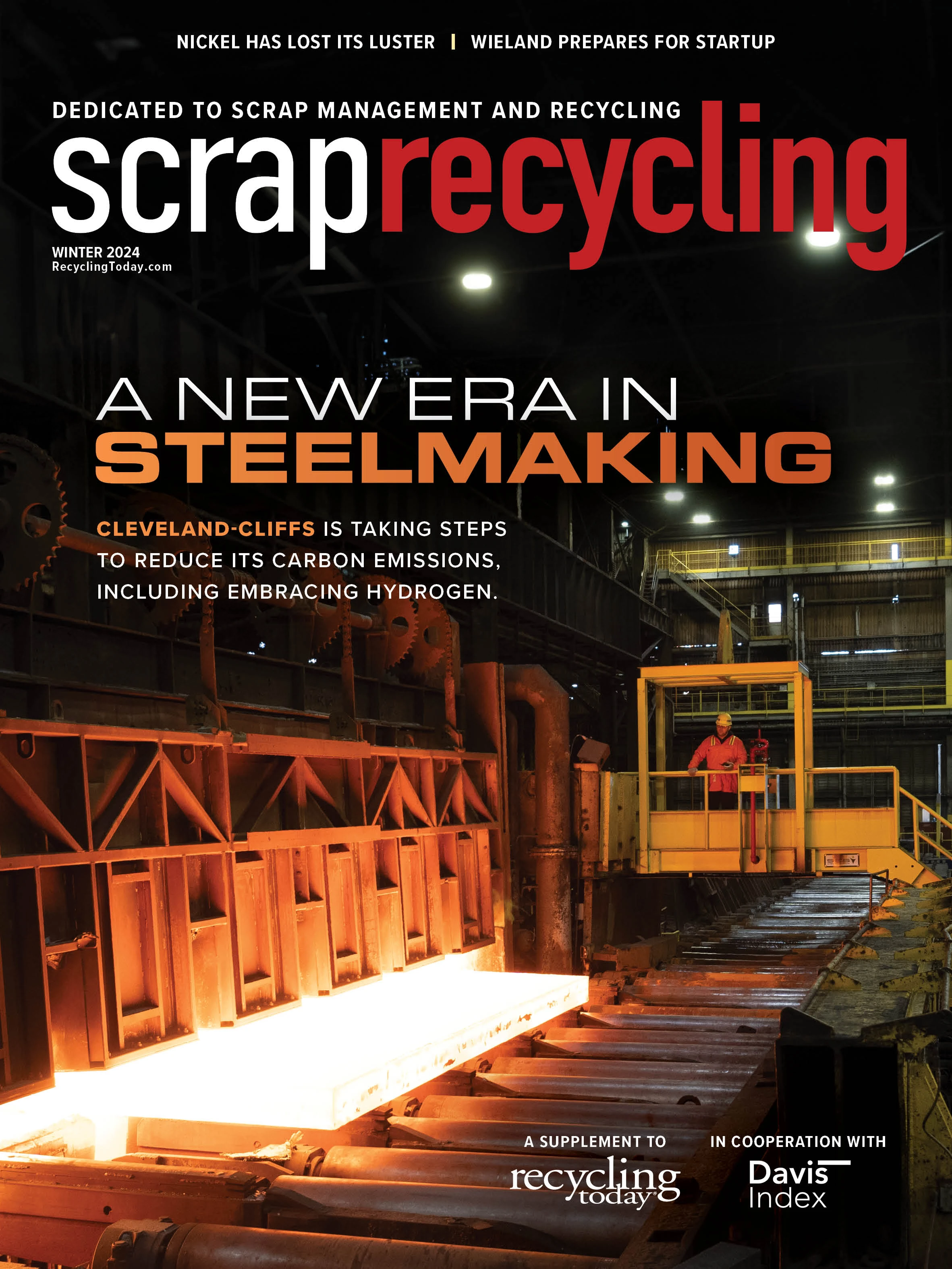
A muted global steel product market negatively affected steel exports from Turkey, one of the major players in international trade, through most of last year. On top of that, the country is struggling with many restrictions, competition and geopolitics.
Exports down
From January through September of last year, Turkey exported 2.52 million metric tons of rebar, down 45 percent compared with the 4.55 million metric tons it exported in the prior-year period, according to the Turkish statistical source SteelData. The sharp decline was caused by weaker demand from foreign buyers and the decreasing competitiveness of Turkish steelmakers because of their rising production costs.
Turkish long steel producers must compete in local and international markets with squeezed margins, negatively affecting the country’s export sales. New exporters like Algeria, Egypt, the United Arab Emirates and Saudi Arabia, which have captured the market with aggressive offers, have put Turkish steel exports under additional pressure.
Algeria and Egypt, particularly, are active because they are not subject to anti-dumping or countervailing duty measures as of mid-December 2023. In contrast, Turkish rebar sales to the U.S. have been severely hit by Section 232 tariffs of about 25 percent and individual anti-dumping duties levied on several Turkish mills.
Sales to the European Union have been limited by steel safeguard quotas. Turkey’s rebar exports to the region dropped 69 percent from 365,000 metric tons to 114,000 metric tons in the first nine months of 2023, and Turkey dropped to the fourth-largest rebar supplier to the EU behind Egypt, Norway and China.
From January through September of last year, the main destinations for Turkish rebar were Israel and Yemen. However, exports to Israel decreased 25 percent to 591,000 metric tons during the first nine months of 2023 compared with 786,000 metric tons in the same time frame in 2022. While rebar exports increased by 3 percent to 553,000 metric tons from 538,000 metric tons to Yemen during that period, the prospects for exports to these countries have dimmed given the ongoing Israel-Hamas war and Yemen’s possible involvement.

Enumerating the challenges
Another upcoming challenge for Turkey is having to adapt to the EU’s ban on imports of steel products rolled from Russian semis, which will come into force April 1. It is expected to be difficult for Turkish mills to completely replace Russian steel inputs with steel from alternative sources. Turkish companies imported 2.62 million metric tons of steel billet from January through September of last year compared with the 1.88 million metric tons in the prior-year period, including 1.2 million metric tons of semis from Russia.
Turkey’s flat product exports suffer from competitive pricing from China, India and South Korea. As a result, the country exported 923,000 metric tons of hot-rolled coils between January and September 2023, down 36 percent from 1.44 million metric tons in the same time frame in 2022, SteelData indicates.
In fact, the Turkish flat steel industry sees competition from imported products within its local market, too, with China, South Korea, Russia and Japan being the major suppliers. Turkey’s flat steel imports from China increased by 60 percent to 2.53 million metric tons, from South Korea by 50 percent to 1.11 million metric tons and from Japan by 76 percent to 550,000 metric tons, while flat steel imports from Russia dropped by 32 percent to 837,000 metric tons. The Turkish government initiated an anti-dumping probe Oct. 31, 2023, into hot-rolled coils imports from Russia, China, Japan and India given the sharp growth of imports in recent months.
High energy costs also have affected steel output. Turkey increased prices for electricity and natural gas in 2022 and 2023, with the most recent hike as of press time being 20 percent effective Oct. 1, 2023.
Most Turkish mills are electric arc furnaces, so they are under pressure and have reduced production. Crude steel output in the country was 24.4 million metric tons from January through September 2023, 10 percent less than the 27.25 million metric tons produced during that period in 2022. The country’s ferrous scrap consumption also was reduced by 10 percent to 20.28 metric tons from 22.55 metric tons, according to SteelData. This figure included 14.07 million metric tons of imported material and 6.21 million metric tons of domestic material.
Finally, reconstruction began in the Iskenderun region of Turkey after earthquakes that occurred in February of last year; however, activity is limited and much lower than initially anticipated at the beginning of last year. The construction sector is muted in Turkey amid increasing interest rates, which already had reached 30 percent last September, and inflation and permanent currency depreciation are other negative factors. It remains to be seen whether the construction sector in Turkey will pick up pace into 2024.

Explore the Winter 2024 Scrap Recycling Issue
Check out more from this issue and find your next story to read.
Latest from Recycling Today
- BMW Group, Encory launch 'direct recycling’ of batteries
- Loom Carbon, RTI International partner to scale textile recycling technology
- Goodwill Industries of West Michigan, American Glass Mosaics partner to divert glass from landfill
- CARI forms federal advocacy partnership
- Monthly packaging papers shipments down in November
- STEEL Act aims to enhance trade enforcement to prevent dumping of steel in the US
- San Francisco schools introduce compostable lunch trays
- Aduro graduates from Shell GameChanger program





